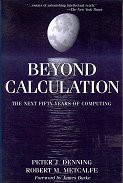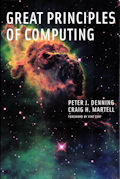The contributions are collected in three Parts: • The Coming Revolution • Computers And Human Identity • Business And Innovation
Contents
- • Gordon Bell, Jim Gray. The Revolution Yet to Happen. 1997
- • Vinton G. Cerf. When They're Everywhere. 1997
- • Bob Frankston. Beyond Limits. 1997
- • Edsger W. Dijkstra. The Tide Not the Waves. 1997
- • Richard W. Hamming. How to Think About Trends. 1997
- • Mark Weiser, John Seely Brown. The Coming Age of Calm Technology. 1997
- • Sherry Turkle. Growing Up in the Culture of Simulation. 1997
- • Donald A. Norman. Why it's Good that Computers Don't Work Like the Brain. 1997
- • David Gelernter. The Logic of Dreams. 1997
- • Franz Alt. End-Running Human Intelligence. 1997
- • Paul Abrahams. A World Without Work. 1997
- • Terry Winograd. The Design of Interaction. 1997
- • Bob Evans. The Stumbling Titan. 1997
- • Fernando Flores. The Leaders of The Future. 1997
- • Larry Druffel. Information Warfare. 1997
- • Abbe Mowshowitz. Virtual Feudalism. 1997
- • Donald D. Chamberlin. Sharing Our Planet. 1997
- • William J. Mitchell, Oliver Strimpel. There and Not There. 1997
- • Dennis Tsichritzis. The Dynamics of Innovation. 1997
- • Peter J. Denning. How We Will Learn. 1997

